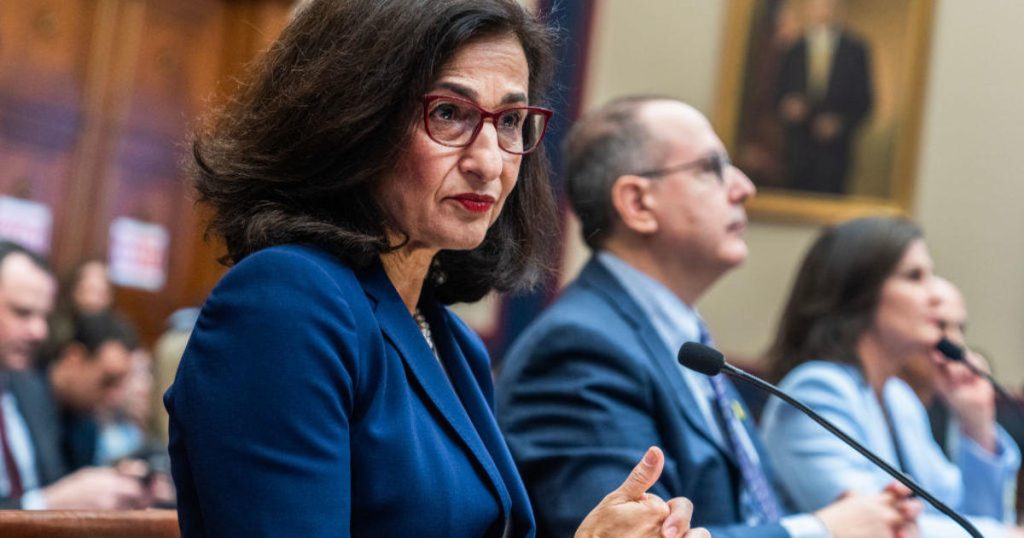Columbia University President Dr. Minouche Shafik testified before Congress about antisemitism on school campuses, condemning the rise of discrimination and hate towards Jewish students at the university. The House Committee on Education and the Workforce presented evidence of unchecked antisemitism on campus, pointing to unapproved antisemitic events organized by students and staff. Jewish students at Columbia have reported an increase in antisemitism over the past six months, with incidents such as finding a swastika on campus and dueling demonstrations over the Israel-Hamas War intensifying. Shafik stated that she has been working on tackling the issue since becoming president, and emphasized that the university has already taken action by suspending 15 students.
The committee raised concerns about Columbia’s failure to protect Jewish students from antisemitism, citing incidents such as a professor praising a terrorist attack and making antisemitic remarks. Professor David Schizer leads Columbia’s Antisemitism Task Force, which was created in response to the spike in antisemitic incidents on campus. Shafik assured the committee of her commitment to confronting antisemitism directly and stated that the university has dismissed several professors for making antisemitic remarks. However, the committee criticized Columbia’s lack of accountability and questioned the handling of individuals like Professor Joseph Massad, who continue to hold positions at the university despite their actions.
Columbia students expressed concerns about the lack of refuge for Jewish students on campus and criticized the university leadership for failing to take sufficient action to ensure their safety and well-being. While some students called for President Shafik to clarify her commitments and take stronger action to combat antisemitism on campus, others expressed fear of repercussions and hostility towards Jewish and pro-Israel students. Protests, such as the Gaza Solidarity Encampment, have taken place on the university’s main lawn, with students demanding divestment from Israeli-linked companies. Shafik emphasized the university’s commitment to free speech and safety for all students, noting the steps taken to address antisemitism and create a supportive environment.
In her testimony, Shafik detailed the university’s efforts to address antisemitism, including suspending student groups, enhancing reporting channels, hiring additional staff, and developing new policies to address the issue. She acknowledged the challenges of balancing free speech rights with the need for a supportive and safe environment for all students. The U.S. Department of Education has launched an investigation to determine if Columbia violated its legal obligations to provide a discrimination-free school environment under Title 6 of the Civil Rights Act. Shafik’s op-ed in The Wall Street Journal highlighted the complex challenges faced by universities in reconciling free speech rights with the need to create a safe and inclusive environment for all students. Other university presidents have also been called to testify about antisemitism on campus, leading to resignations and further investigations.


